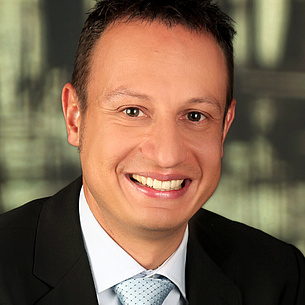Content
- applications, particularly in the areas of payment, Industry 4.0, logistics and people with disabilities,
- networking and cooperation and
- new innovative formats such as ‘Expert Exchange Circles’ and ‘Experimenting’ as well as ‘The Learning Factory’ or ‘Factory in the Classroom’.
Success of the Qualification Networks
- expertise of more than 500 participants from respective companies strengthened
- knowledge gained in over 800 teaching units per network (there are over 1,600 teaching units in total)
- extensive communication among members of the field
- product ideas, product enhancements and new projects for the companies involved
- more rapid market access, increased competitiveness and R & D effectiveness for the companies involved
- follow-up research projects on RFID

- Period: 2014 to 2016
- Participants: 307
- Courses: 57
- Period: 2012 to 2014
- Participants: 217
- Courses: 48

Dynamically networked software services play a central role in RFID / IoT applications. The variety of networking possibilities allows many new applications to be introduced into virtually all areas of life, but also increases the complexity of the software and systems. Modern techniques to control and reduce complexity in software development, therefore, are the subject of my teaching. The subjects of the intensive dialogues held with participants and teachers are carried over into innovation and research projects at the Institute for Software Technology.

The RFID Qualification Network is an excellent promotional tool that makes a significant contribution to the continuing education of our employees. In NXP branch in Gratkorn with over 500 employees is the competence centre worldwide for secure contactless communication systems (RFID, NFC). TU Graz has acted as a technically competent, highly dedicated coordinator that has contributed significantly to the success of this initiative.
- TU Graz, 6.10.2014: Steiermark als RFID-Mekka: TU Graz leitet Qualifizierungsnetzwerk
- Österreichische Forschungsförderungsgesellschaft FFG, 8.04.2015: Forschungserfolge, Jahresbericht 2014, Seite 20: Regionale Hightech-Stärken ausbauen
- Bundesministerium für Wissenschaft, Forschung und Wirtschaft, 28.08.2015: Mit Weiterbildung zum Technologieführer
- 7iD Technologies GmbH
- ams AG
- ANTEVORTE - Innovation in Motion e.U.
- AVL List GmbH
- Axtesys OG
- DCCS GmbH
- EDconsult Dipl.-Ing. Schrümpf
- EL&KA Technik e.U.
- Enso Detego GmbH
- EUROTRANSLINE Internationale Speditions- und Transport-Ges.m.b.H.
- exthex GmbH
- Infineon Technologies Austria AG
- JIPP.IT GmbH
- Lognostik DI Klaus D. Tolliner
- NXP Semiconductors Austria GmbH
- Oliver Jakob Regenfelder e.U.
- Phactum Softwareentwicklung GmbH
- Raiffeisen Informatik Center Steiermark GMBH
- Sendhybrid GmbH
- smaXtec animal care sales GmbH
- sms.at mobile internet services gmbH
- Solfox GmbH
- TeleConsult Austria GmbH
- Time Tac GmbH
- TransSystems Development & Research GmbH
- voestalpine Austria Draht GmbH
- Xaidat GmbH
- xFace e.U.
- Yagoba GmbH
- Campus 02 Fachhochschule der Wirtschaft GmbH
- evolaris next level GmbH
- IFZ - Interuniversitäres Forschungszentrum für Technik, Arbeit und Kultur
- Joanneum Research Forschungsgesellschaft mbH
- NanoTecCenter Weiz Forschungsgesellschaft mbH
Professional support and evaluation:
- DI Dominik Berger, 2be1 Consulting KG

